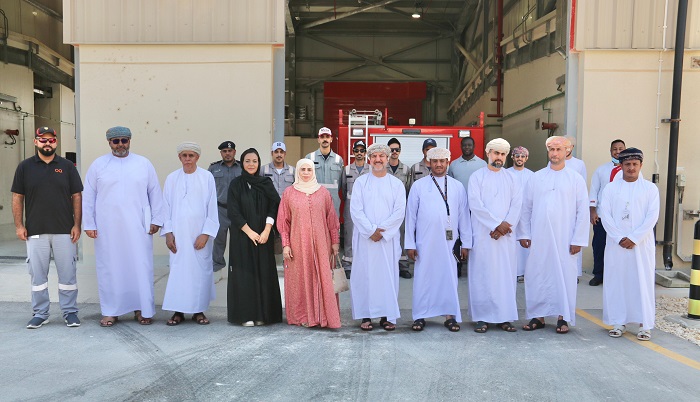
Muscat: Oman Human Rights Commission (OHRC) reviewed the labour services and care offered to workers in the Special Economic Zone at Duqm, observing adherence to protection standards, an appropriate work environment, and general compliance of facilities with occupational safety, health, and international standards for worker accommodations.
The Commission expressed its satisfaction after a field visit conducted by a delegation chaired by Prof. Rashid bin Hamad Al Balushi, Chairman of the Commission, to the Special Economic Zone at Duqm.
The visit included examining worker communities, accommodations, and interacting with employees in the area. The delegation’s field visits included the labour camp at Ras Markaz managed by the Oman Tank Terminal Company, Al Nahda labour village accommodations, and Karwa Motors’ labour camp.
The delegation assessed the services provided to the workers, monitored their health and environmental conditions, and ensured the security and safety services meet international human rights standards.
During the visit, the delegation met with several workers, listened to their perspectives, discussed various topics concerning their rights, introduced them to the Commission’s work, monitoring mechanisms, complaint procedures, and communication channels available to citizens and residents alike.
The delegation concluded the visit by meeting with Eng. Ahmed bin Ali Akaak, CEO of the Special Economic Zone at Duqm, reviewing the area’s master plan, future development plans, and the zone’s role in providing the best infrastructure, services, and business environment conducive to Omanis, residents, and investors.
The Commission also verified ongoing monitoring of labour accommodations to ensure compliance with safety and occupational health standards.
This visit aligns with the Commission’s mandates under its bylaws, issued by Royal Decree No. (57/2022), where Clause 6 of Article 11 stipulates that the Commission shall conduct field visits to prisons, detention centres, hospitals, and labour communities to monitor human rights conditions therein.